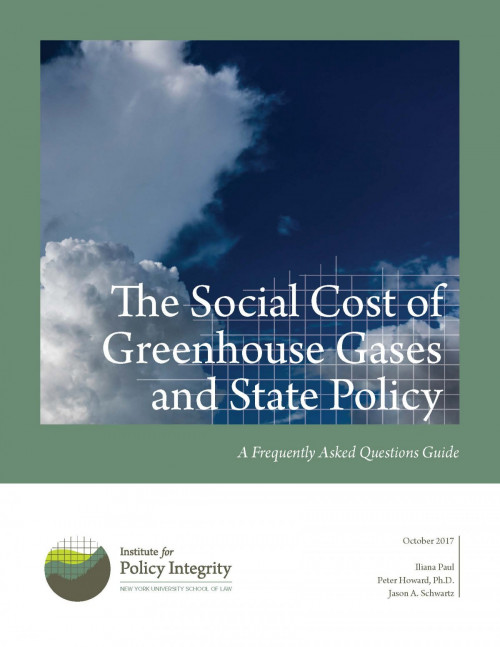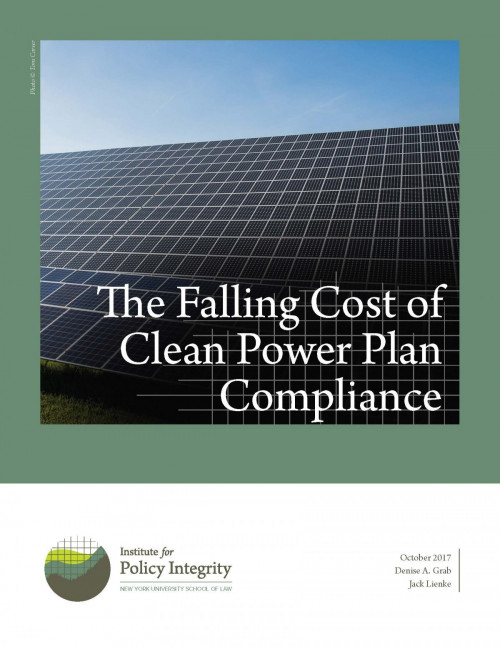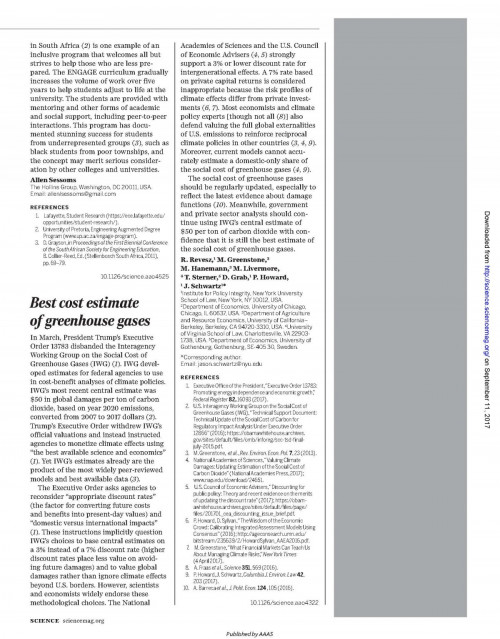-
Comments on Reconsideration of NHTSA Rule to Update Civil Penalties
In December 2016, the National Highway Traffic Safety Administration (NHTSA) finalized a rule that updates civil penalties for car manufacturers that violate fuel economy standards. NHTSA is now reconsidering the rule, claiming it would have a significant negative economic impact. The agency provides no evidence that economic circumstances have changed since the rule’s finalization to make the rule more costly. Our comments argue that the agency should not proceed with the proposed reconsideration, because it inadequately explained why it changed positions. If the agency does continue with the reconsideration, both the Inflation Adjustment Act and economic cost-benefit analysis would justify an update to the penalties rates rather than maintaining the original penalty rate from 1975.
-
Reconsideration of GHG Emissions Standards for Model Year 2022-2025 Light-Duty Vehicles - Comments
In August, Environmental Protection Agency and National Highway Traffic Safety Administration announced their intentions to reconsider greenhouse gas and fuel economy standards for light-duty vehicles for model years 2022-2025. Our comments show that the employment effects from the standards are likely to be small, and we provide details on the short comings and biases of industry analyses that purport to show large employment effects. In contrast, the comments explain that the standards will help reduce numerous externalities, resulting in large welfare gains for consumers and the creation of valuable environmental benefits.
-
Comments to Interior’s Royalty Policy Committee
On behalf of Policy Integrity, Policy Director Jayni Hein recently delivered a statement at the Department of Interior’s Royalty Policy Committee public meeting on October 4, 2017. Her statement included recommendations on how Interior can achieve “fair market value” for taxpayers for the use and development of federal resources, as well as how Interior can fulfil its “multiple use” mandate.
-

The Social Cost of Greenhouse Gases and State Policy
A Frequently Asked Questions Guide
States can benefit from using the social cost of greenhouse gases to aid in making rational policy decisions in a transparent manner. Many states are already using these metrics in their decisionmaking. This report provides information on several issues related to the social cost of greenhouse gases, including discount rates, time horizons, and the global nature of the estimate.
-

The Falling Cost of Clean Power Plan Compliance
In 2015, the U.S. Environmental Protection Agency (EPA) released the Clean Power Plan, a Clean Air Act rule designed to address the threat of climate change by cutting carbon dioxide emissions from fossil fuel-fired power plants. As part of that rulemaking, the agency prepared an estimate of compliance costs, which it found would be far outweighed by the rule’s climate and health benefits. Since that time, changes in the electric sector have made it even cheaper to meet the rule’s emission targets than EPA anticipated. This report summarizes the findings of EPA’s 2015 Regulatory Impact Analysis; discusses subsequent market and policy developments that have lowered the cost of complying with the Clean Power Plan; and surveys more recent analyses by independent groups, which have estimated substantially lower compliance costs than EPA did.
-
Joint Comments on Fuel Economy Standards and the Social Cost of Greenhouse Gases
Vehicle fuel economy standards set by the National Highway Traffic and Safety Administration (NHTSA) help reduce greenhouse gas emissions in the United States by making cars more fuel efficient. Our comments on the reconsideration argue that NHTSA should value the social cost of those emissions as robustly as possible, as they have done in the past. We encourage NHTSA to consider the social cost of greenhouse gases in both the rule’s Environmental Impact Statement and Regulatory Impact Analysis, and that it should use estimates considering global damages of climate change using a three percent or lower discount rate.
-
Response to a Critique of New York State’s Clean Energy Programs
A recent report criticizing New York’s Clean Energy Standard (“CES”) incorrectly argues that the CO2-reduction benefits from these programs are non-existent. The report claims that the benefits of reducing CO2 emissions with the CES, which are valued using the Social Cost of Carbon (“SCC”), are “effectively zero.” This conclusion and the preceding assertions are incorrect and inconsistent with basic economics. Our response highlights the flaws of the report and explains that New York’s CES in fact generates significant and crucial environmental benefits.
-

Best Cost Estimate of Greenhouse Gases
Despite the Trump administration’s decision to withdraw the official estimate of the Social Cost of Carbon and disband the interagency working group that developed it, a group of prominent economists and lawyers, including several Policy Integrity staff members, have highlighted the metric’s continued validity for policymaking in recent letter published in the journal Science.
-
Public Comments on Regulatory Review (Treasury, GSA, FEMA, State, DOJ, FCA, Interior)
Many federal agencies are requesting the public’s suggestions for rules to repeal or reform, tacitly implying that most regulations stifle economic growth. In comments to several agencies, we argue that regulatory review should consider the public benefits of regulation, not just the costs to regulated industries, and should prioritize review of rules for which actual costs and benefits diverge significantly from predicted costs and benefits.
-
Comments to EPA on Delaying Methane Rule
In 2016, EPA issued a rule to decrease methane and volatile organic compound emissions from new, modified, and reconstructed sources in the oil and natural gas sector. EPA has now proposed to suspend some of the rule’s compliance obligations for two years while the agency decides whether and how to revise those requirements. The U.S. Court of Appeals for the D.C. Circuit rejected an earlier attempt by EPA to stay the methane rule for 90 days, and our comments argue that the new proposal is similarly unlawful.
Viewing recent projects in Climate and Energy Policy



